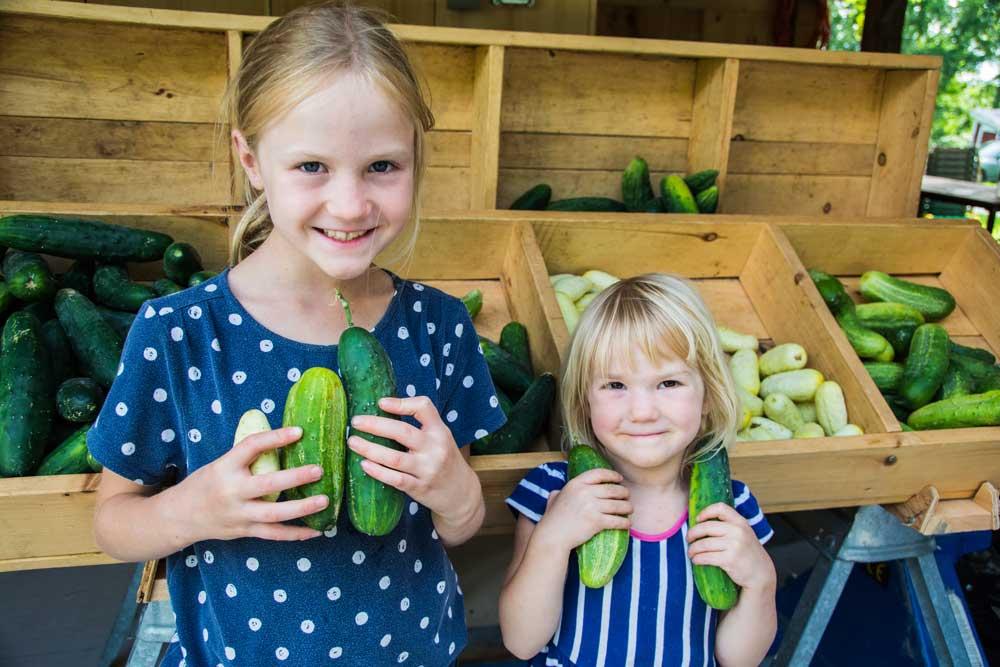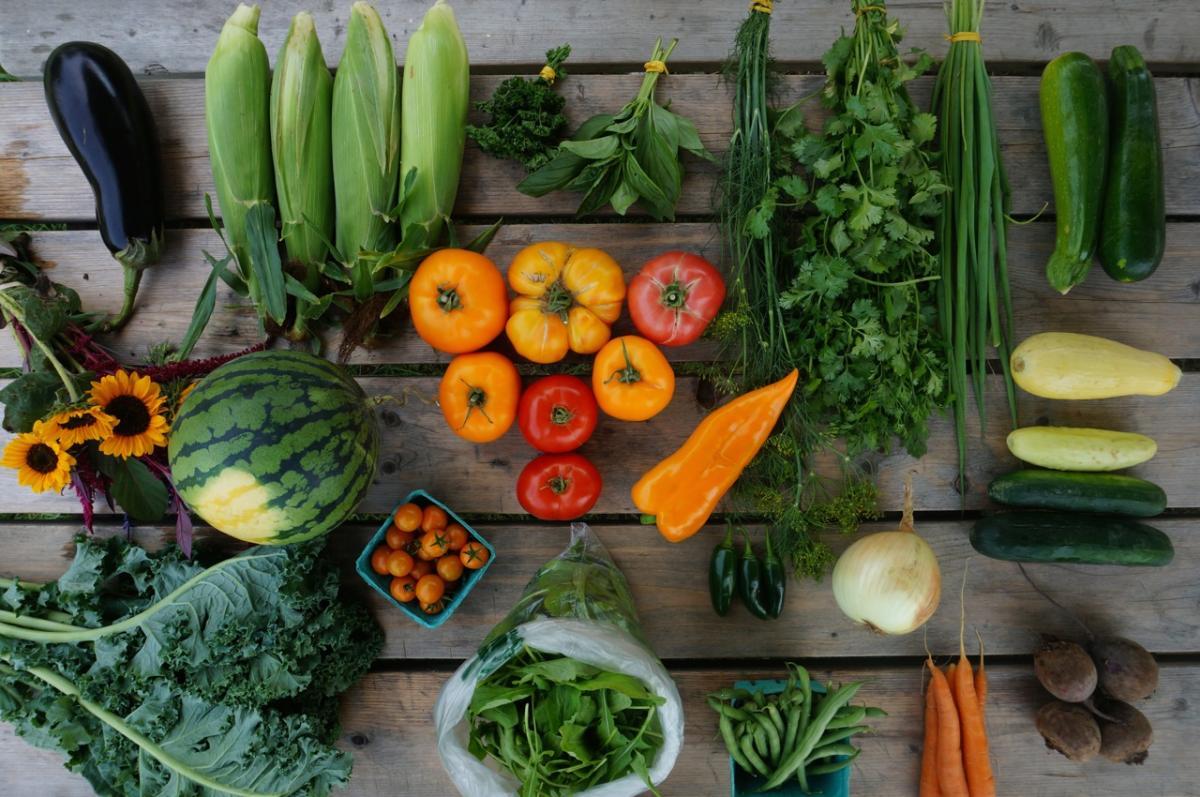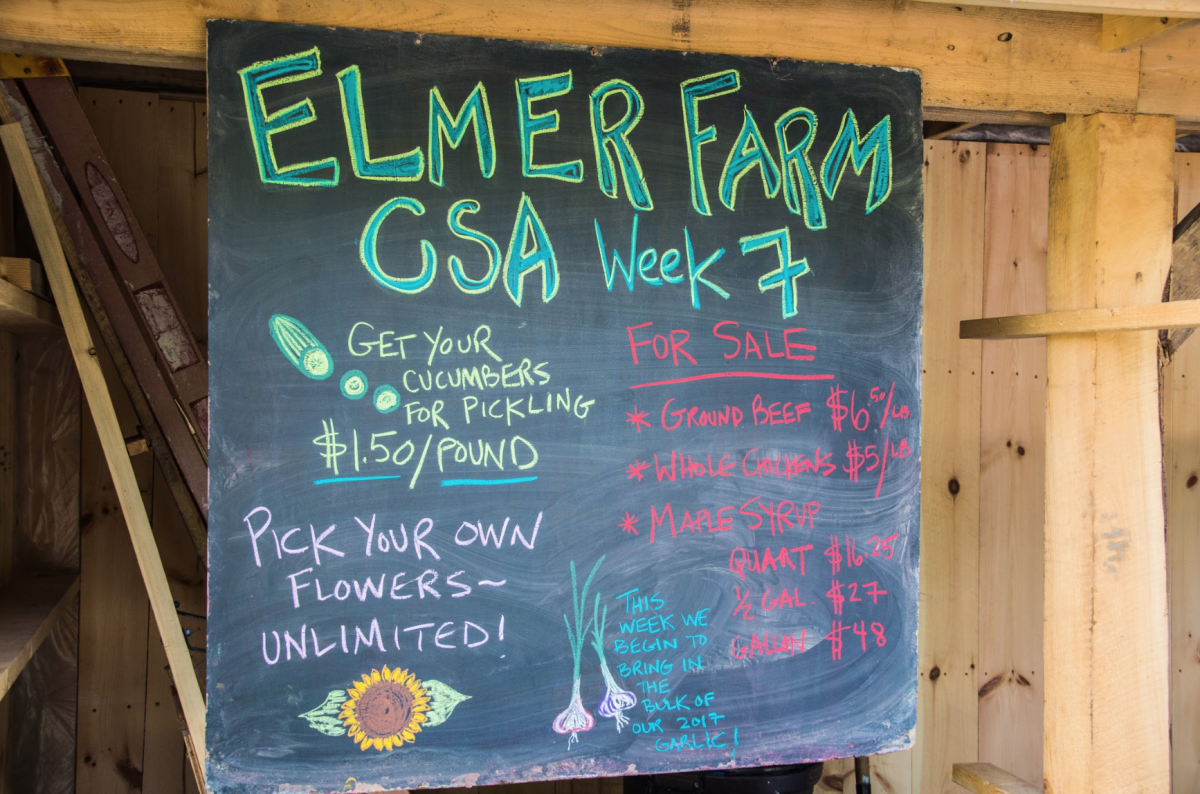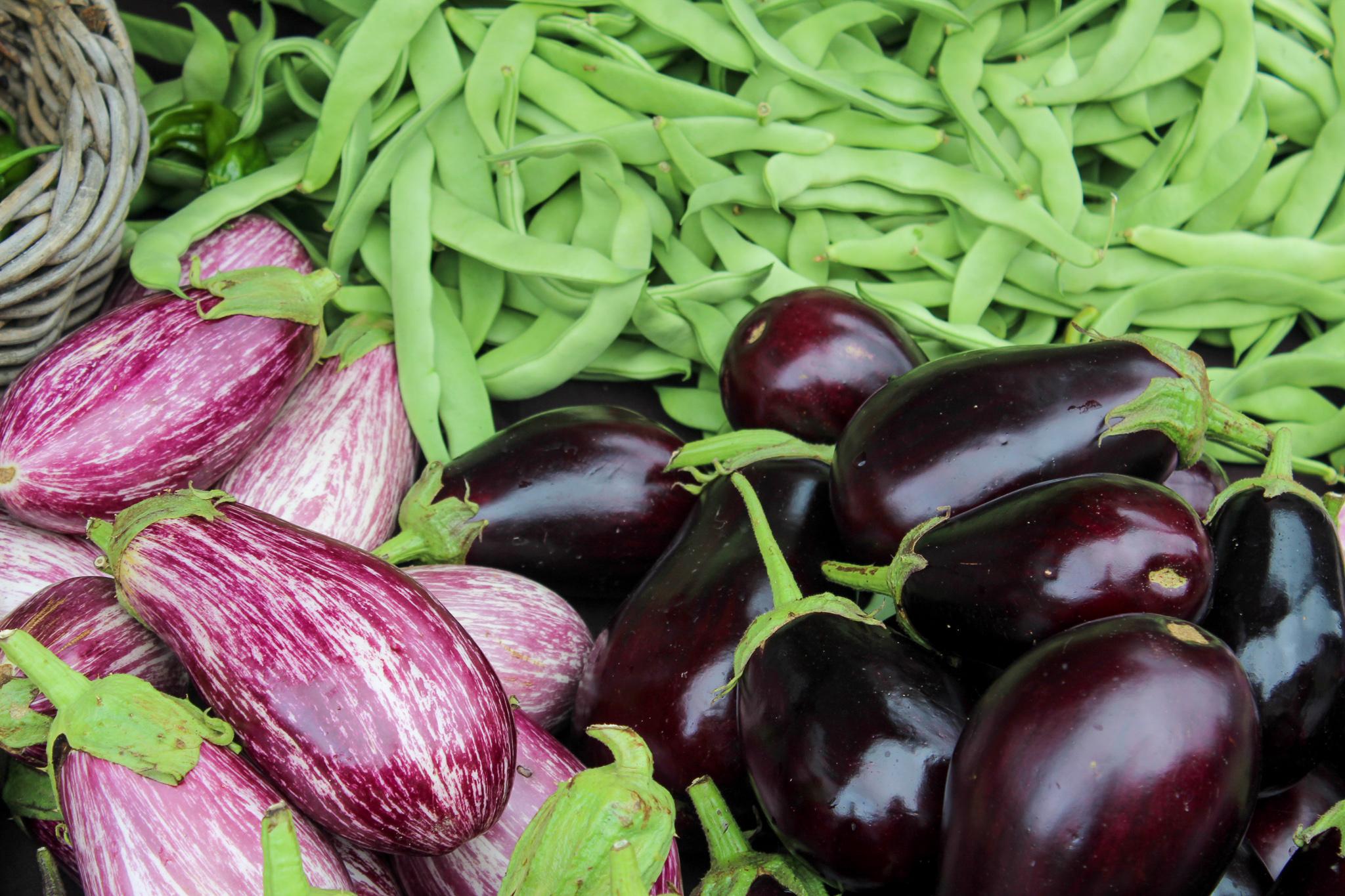
“I’m in it for the view!” It wasn’t what we were expecting to hear when we asked CSA Members why they chose our CSA, though the Worcester Mountains do stand prominently across the valley from our hillside farm. What we expected was to hear more about vegetables. And for sure, getting fresh local organic vegetables was a driving force for our members, but there was also so much more:
“I am committed to eating locally as much as possible—keeping more money in the local economy, reducing environmental harm, supporting small businesses and getting beautiful, fresh food,” one member wrote. Another said her key motivators were “supporting a farm directly and having as close a relationship as possible to the production of as much of the food I eat as possible, without having to grow it myself. Knowing exactly where my food comes from and participating in community efforts to be self-sustaining.”
It quickly became clear that community, the environment, and the economy all weave together when it comes to buying food. Vermont eaters want more than fresh produce—they want to know that the food they’re buying plays into a larger solution to environmental issues, a stronger local economy, and a stronger community. Across Vermont, direct food sales through CSAs, farmers markets and farm stands play a role in all three of these.
Let’s start with the economy. According to a study done by the American Independent Business Alliance, “On average, 48 percent of each purchase at local independent businesses was recirculated locally, compared to less than 14 percent of purchases at chain stores.” Whether it’s dairy, maple, produce or fruit, skipping the supermarket and instead buying food directly from Vermont farmers helps keep more money in the local economy, and in turn helps grow the economic well-being of Vermont.
Direct sales not only help the wider economy, they also contribute to the economic feasibility of small farms. While wholesale sales are part of many farms’ income streams, farmers retain all the profits from direct sales and can receive 40% more money for each sale, because no intermediary businesses are taking profits. This can help lead to more financially sustainable farm businesses. At the same time, direct sales through farmers markets, CSAs and farm stands aren’t more expensive for eaters.
In fact, a 2015 Vermont Agency of Agriculture led price comparison study between farmers markets and retail stores found that, “When comparing local products, farmers’ market prices are competitive a majority of the time, and, in some cases, local products available at farmers’ markets are actually less expensive than the same local products available at retail establishments.” A follow-up 2016 study by NOFA-VT, which included CSAs and farm stands, found certified organic CSAs to be the most financially competitive compared to retail stores, likely because of the built-in 10-15% discount many CSAs offer. Whether it’s a farmers market, farm stand, or CSA, these studies show that direct markets offer a financial win-win for farmers and eaters.
Of course, it’s not just about the money. The natural landscape and environment is at the heart of who we are as Vermonters, and organic farmers are among those on the front lines of environmental stewardship. We use practices that build soil, reduce erosion, and increase both flood and drought resistance. From these practices we’re able to grow food that is healthy for eaters in a way that enhances the sustainability and regeneration of the land. It’s not just lip service—direct markets offer the highest level of transparency short of growing your own food. When buying direct, eaters can ask farmers about their practices, and in the case of many CSAs, eaters regularly visit the very farms their food is grown on. So just as every dollar spent in direct sales supports farmers who are working to build and maintain a resilient landscape, direct sales also allow eaters to know exactly how and where their food is grown.
In eating local and buying direct from farms, eaters support their health, their families, the environment, and Vermont farmers. But more than that, they have experiences that make their lives happier. Picking up a CSA share or strolling through the farmers market is about so much more than food. It’s about cultivating relationships and community, both of which are roots of happiness.

In a Harvard study called Very Happy People, results showed the correlation between social support and happiness is higher than the correlation between smoking and cancer. Over the last five years of running our CSA, we’ve seen that the community aspect of the share is just as big a draw as the vegetables. When we asked our members what they value most about the CSA, they responded:
“I value the high quality food and great relationship with the farmers."
“I value the community focus, farmer knowledge and friendliness.”
"The gorgeous produce, and the community feeling."
As a farmer, it’s a deep privilege and joy to hear how kohlrabi brings someone back to childhood, how eating from our farm keeps their memories of their grandfather alive, or how their kids will finally eat fresh vegetables (to the detriment of having exactly no snap peas left by the end of the car ride home).
On CSA pick-up days, our members visibly relax as they step out of their cars and shake off their work days. They linger in the farm stand, talking with us and other members, asking questions, swapping recipes, sharing stories, catching up on school board issues and soccer games.
Unlike a grocery store, the CSA pick-up is a place where people introduce themselves and get to know each other. It’s a place where we grow the social networks that can support us both physically, through fresh food, and emotionally, through relationships. More than once I’ve listened as a CSA Member teared up and shared the challenges they were facing. And when we as farmers face challenges—my husband throwing out his back, my Lyme diagnosis—our CSA Members show up with open ears offering support back to us.
Whether it’s through a CSA share, a farmers market, or farm stand, buying food directly from farms is a vital way to grow strong communities. Direct markets support the heart of Vermont and play a foundational role in the authenticity of who we are as a state and as Vermonters. This is how we connect to each other and the land. How we give everyone the opportunity to be part of the land, part of their food, and part of something bigger than themselves.

Direct markets lead to direct connections, and in this way, they have the power to not only feed Vermonters healthy food and support the economic feasibility of farmers, they also have the power to literally make us happier. So this season, seek out your local farmers market. Join a CSA. Buy your veggies from a farm stand. I promise, you’ll be happy you did.

